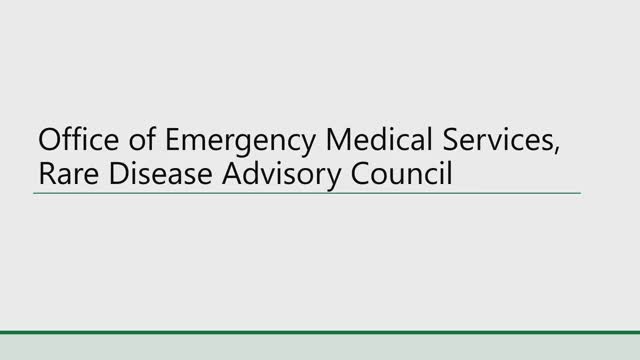Staff reviews Office of Emergency Medical Services changes, EMS funding and Rare Disease Advisory Council funding
Get AI-powered insights, summaries, and transcripts
Subscribe
Summary
House staff told the committee the Emergency Medical Services Regulatory Board became the Office of Emergency Medical Services on Jan. 1, 2025, outlined EMS responsibilities and noted the office’s general-fund base and that the Rare Disease Advisory Council receives approximately $652,000 in general-fund spending.
Nonpartisan staff briefed the House Health Finance and Policy Work Group on Jan. 15 about the newly constituted Office of Emergency Medical Services and the Rare Disease Advisory Council.
Why it matters: EMS licensing, certification and grant programs affect emergency response capacity across the state; the Rare Disease Advisory Council provides recommendations intended to improve diagnosis and access to care for people with rare conditions.
Staff said the Emergency Medical Services Regulatory Board was replaced by the Office of Emergency Medical Services, effective Jan. 1, 2025. They described the office’s duties: licensing ambulance services, registering medical response units and emergency medical responders, certifying EMTs/AEMTs/paramedics, approving education programs and administering pilot programs and grants. House Fiscal staff reported a general-fund base appropriation to the office of about $12,356,000 for the upcoming biennium.
On the Rare Disease Advisory Council, staff said the council was established in 2019 at the University of Minnesota and became an independent advisory council in 2022. The presentation reported the council receives approximately $652,000 in general-fund spending and described the council’s membership and duties: at least 17 public members and four legislators; developing resources and recommendations for treatment quality, access to services, and advising on state and federal policy.
The presentation was informational; no committee votes or directives on EMS licensing or Rare Disease Council policy were taken at the meeting.
